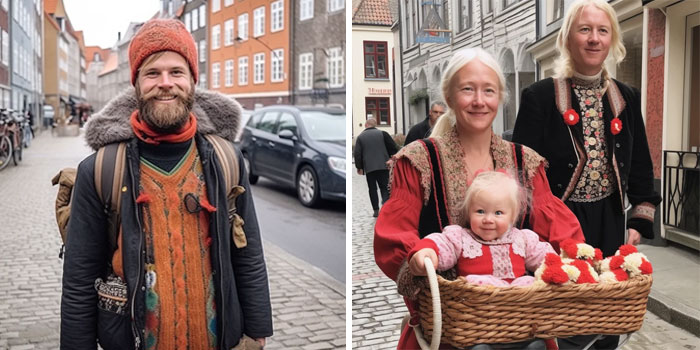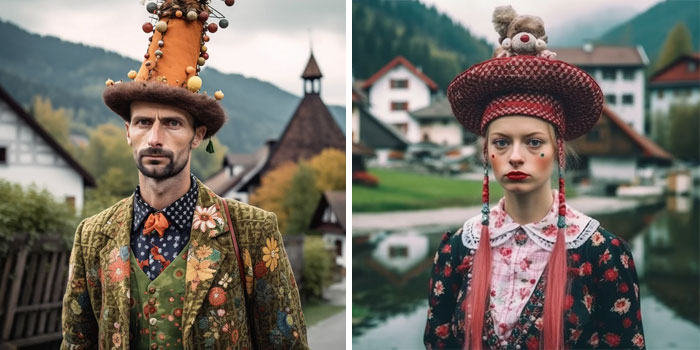
Artificial Intelligence has been continuously astonishing us with its abilities. Recently, it’s been making astonishing progress in comprehending natural language and generating text-based responses, as seen with ChatGPT. Not a long time ago, Microsoft unveiled its AI integration with the Edge browser and Bing search engine. Google also presented its own solution, although it was not as successful as its competitors.
In addition to written language, there has been a lot of discussion in recent years about the advancements in artificial intelligence for imaging technology, which has produced remarkable outcomes. There are various tools such as DALL-E 2, Stable Diffusion, and Midjourney, among others, that have the capability to generate new images and even recreate art.
Reddit user WeirdLime used an image generator Midjourney to craft representations of the most “stereotypical” men and women from different European countries, and the reactions from viewers have been quite noteworthy.
1. Iceland

2. Ukraine

3. Denmark

4. Finland

AI’s potential to reinforce stereotypes borders on the dangerous. It varies depending on numerous factors in its development and deployment. The degree to which AI perpetuates biases hinges on the quality and diversity of training data, the algorithms employed, and the awareness of developers regarding ethical concerns. When AI systems are trained on biased data or designed with algorithmic flaws, they can inadvertently amplify existing stereotypes, leading to biased outcomes in various applications, from hiring algorithms to content recommendation systems. However, with proactive measures like diverse training data, careful algorithm design, and ethical guidelines, it is possible to mitigate these issues and harness the power of AI to foster fairness and inclusivity rather than perpetuate harmful stereotypes.
5. France

6. Ireland

7. Sweden

8. Portugal

9. Germany

Training AI to avoid reinforcing stereotypes requires a multifaceted approach. Central to this effort is the use of diverse and representative training data, ensuring that the dataset encompasses a wide range of demographics and perspectives. Prior to training, thorough data preprocessing should be conducted to identify and mitigate biases. Regular audits and testing are essential to detect and quantify any bias that may emerge during the training process. Employing fair sampling techniques and bias-reduction algorithms can further contribute to minimizing bias. Moreover, establishing clear ethical guidelines for AI development, fostering diverse development teams, and designing transparent and explainable models are vital components of a strategy aimed at creating AI systems that actively counteract, rather than perpetuate, stereotypes. This holistic approach reflects a commitment to harnessing AI’s potential while upholding principles of fairness, non-discrimination, and equity.
10. Greece

11. Netherlands

12. Czechia

13. Poland

14. Austria

15. Belgium

16. Croatia

17. Italy

18. Norway

19. Slovenia

20. Spain

21. England

22. Switzerland

AI Generates The ‘Most Stereotypical Person’ From 22 Countries. - The Language Nerds
Comentários
Enviar um comentário